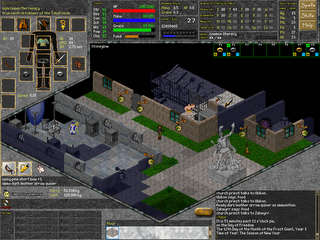 You may have seen the stories – they ran about a week ago – about Joseph Edward Duncan III’s plea bargain with state prosecutors on charges arising out of his killing three people so he could kidnap a little girl and her brother.
You may have seen the stories – they ran about a week ago – about Joseph Edward Duncan III’s plea bargain with state prosecutors on charges arising out of his killing three people so he could kidnap a little girl and her brother.The little girl was eventually rescued, but Duncan apparently murdered the boy.
I’ve read a number of these stories, and I’m still somewhat confused about the nature of the plea bargain.
The stories all say Duncan originally wanted to give up the key to encrypted files on his laptop in exchange for getting a pass on the death penalty. State prosecutors apparently rejected that offer, but have accepted a plea bargain under which the encryption key will be revealed, but only to Duncan’s defense lawyer.
Prosecutors are apparently interested in the encrypted files because they may contain a journal that provides information about the crimes with which he has been charged (and maybe others, as well). Duncan is being prosecuted both by federal and state officials, for different crimes arising out of the murders and kidnappings I noted above. Both jurisdictions intend to seek the death penalty.
What I found interesting about some of these stories, anyway, is that they say federal computer experts have spent a year trying to crack the encryption, have been unable to do so. Duncan is reported as saying that it would take “at least 30 years” for technology to emerge that would let law enforcement crack the encryption. I don’t know. I have been told that there are federal experts who could crack the encryption now, but then they would probably have to explain how they did it – in court – and that is not something the government wants to do.
In an earlier post, I speculated about what would happen if someone entering or leaving the United States with a laptop were ordered to give Customs Officials the encryption key needed to access encrypted files on that laptop. Duncan is not going that route – he’s apparently less concerned about giving up incrementally incriminating information than he is about saving his neck (which may or may not work, since it doesn’t seem either the federal or state prosecutors are interested in that particular deal).
A couple of weeks ago, I got a letter from a man who was arrested at an airport when he was trying to return to the U.S. from a business trip abroad. He was carrying a laptop with encrypted files on it, among which there apparently were some child pornography files. Customs Officers stopped him, looked through his belongings, tried to review the files on the laptop but could not because the hard drive was encrypted.
According to him, they ordered him to give them the encryption key and he complied because he didn’t know he had a choice. He says the officers then took the laptop away for some time, searching it, and came back after finding child pornography. He was then arrested, and has been in jail since. (He has dual citizenship and so is considered a flight risk).
I gather the Customs Officers say they did not coerce him, that he voluntarily gave up the encryption key. If that is true, then he waived any hope of invoking his Fifth Amendment privilege against self-incrimination. The Supreme Court has held that, when it comes to the Fifth, you either invoke it or lose it. In other words, if you answer questions or give up an encryption key, you’re toast. You cannot object to the use of the evidence on the basis that it was obtained in violation of the Fifth Amendment.
The man’s story makes me wonder about several things: I wonder what actually happened to him, though I tend to suspect that here, as is usually the case, the truth lies somewhere between his version and the Customs Officers’ version of what happened.
I wonder if this happens to other people and if they, too, give up the encryption key, not being aware that they have (may have) an alternative.
I wonder what would happen if someone adamantly refused to give up their encryption key – would the Customs Officers simply arrest them, for failing to cooperate with U.S. Customs procedures?
I rather doubt that, because I once did a presentation on the border search exception and the Fifth Amendment to a group of federal prosecutors, nearly all of whom said that if someone adamantly refuses to give up the encryption key, the Customs Officers would let them go . . . not “go” in the sense of passing through Customs and boarding a plane, but “go” in the sense that they could decide they did not really want to fly that day, and would instead abort the trip.
I’m not all that sure Customs Officers would want to let someone walk away who refuses to give them an encryption key. Obviously, the officers would not ask for it unless they thought there was some reason to search the files (since I assume they are far too busy to search every laptop they see). If they had “reasonable suspicion” – a lower level of probable cause to believe a crime has bee committed – they might be able to hold the person while they seek some alternative way to resolve matters, not that I’m sure what that would be.
I actually have two trips abroad this fall, but I won’t be taking a laptop either time, so I won’t have the occasion to check all this out. If I really needed a laptop on either trip, it might be an interesting experiment, to see if mine got flagged for a check (or maybe not . . . . ).








